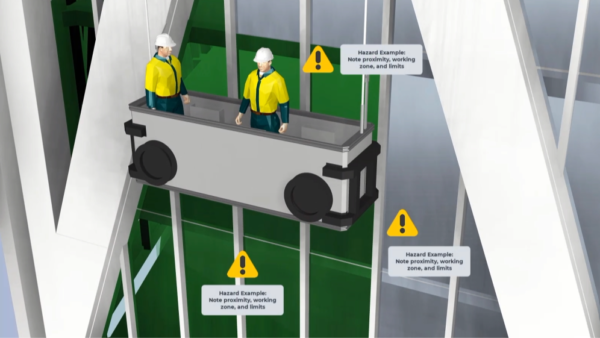Drones are a brilliant piece of tech, but hardly a pick-up-and-play type of device, so it’s important to get the most out of your drone, whether you want to become a full-time pilot or use it as a tool in your workplace. Matt Lee of Uplift Drone Training offers some advice.
Modern technology continues to revolutionise virtually every industry – and drones are one of the recent tech phenomena being used as a tool for various professional purposes.
Drones require a lot of practice to fly efficiently and safely when used in a commercial environment. That’s why drone flying courses and CAA training can be a major asset if you’re planning on getting the most out of your drone, especially while using it for professional and commercial purposes.
Let’s take a closer look at these useful tips, along with some other key steps to take to ensure your drone is a worthwhile purchase.
Practise your craft
To become proficient at any task, you’ll need to practise, practise, practise – and practise some more. Flying a drone for commercial purposes is more advanced, in regards to the task at hand, than just owning one for leisure. This means you’ll want to maintain a certain level of skill and efficiency at all times.
With drones being used for a range of purposes in a variety of different industries, it means that as a drone pilot, there is plenty of potential for a lucrative career. This makes it all the more necessary to become as skilful as possible as a professional, so that you’re capable of attaining drone-based jobs.
Commercial operators should seek out the best CAA training
Because of the astounding popularity of drones for professional purposes, becoming a commercial drone pilot can be a lucrative profession to take on. To do so, you’ll need to look the part on paper and have the skills to back it up. Drone flying courses and CAA (Civil Aviation Authority) training are how you can do exactly that.
Not only will this give you a clearer view of the various aviation rules and regulations that come into play when you take you drone for a spin, it will also give you an abundance of training and advice to help you become a fully-fledged drone specialist.
Drone flying courses and CAA training will be brilliant for future employment opportunities, putting you a level above the others.
Stay in the know about drone rules and drones in the media
As the owner and pilot of a drone, it’s always a good idea to maintain an active interest in all things drone. As a relatively new phenomenon, there may yet be new rules and regulations put in place that affect your career as a drone pilot. Staying in the know about such things will ensure you aren’t caught out by any new aviation rules and punished for it.
Keeping a keen eye on drone-based news and media will also be essential as it could affect you or your company. If you happen to be a drone operator or your business uses them it’s worth noting that the current drone laws may change shortly. There have been calls for legislation changes after a drone caused a runway at Gatwick Airport to close in July by flying too close.
It has also just been announced that a change to drone legislation is being introduced in the UK. This will introduce mandatory registration for all drones weighing 250 grams or more, and owners will have to pass a safety awareness course to prove they understand UK security, privacy and safety regulations.
Tougher regulations for drones will not only make CAA training even more essential, but also mean that as a drone owner you’ll need to maintain an active awareness of laws that affect you. This is especially crucial from a professional standpoint where failing to follow correct procedures will incur fines and loss of income.
Just like any other purchase or professional investment, getting the most out of your drone is essential. Whether it’s improving your knowledge of drones and their features, reading the manual from cover to cover, or getting drone flying courses and CAA training to improve your flying capabilities, these tips are the key to successful professional drone use.
Related articles
- When does monitoring become spying?
- Making sense of your drone data
- Japanese government to use drones and AI to raise construction efficiency
Image: Miro9966/Dreamstime.com











